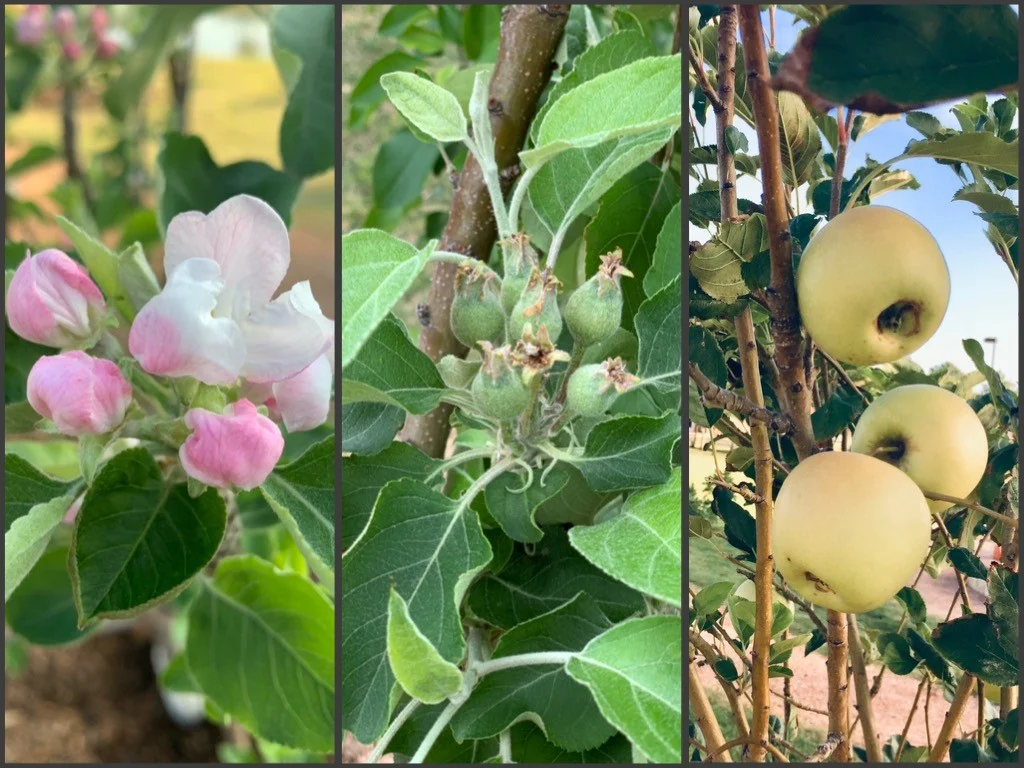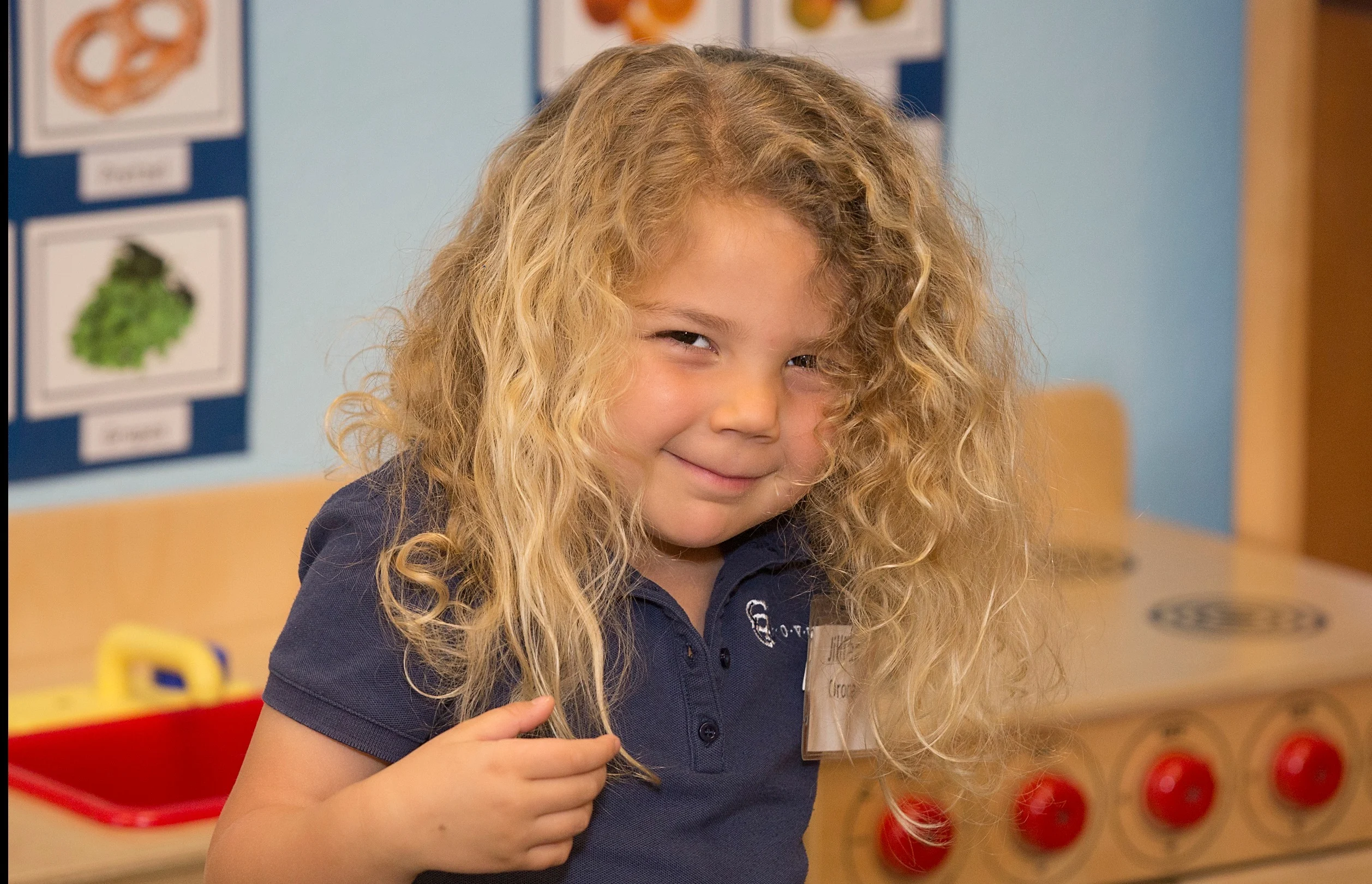Growing in a Classical Christian Kindergarten

Did you know CCA’s first harvest of apples occurred this year in the garden? After several years of tending, caring, and watching…Apples! And every kindergartener will say, “They were tasty!” Now, we watch the blossoms fade with the hope of new apples next Fall.
Lots of growing is taking place around here. Yes, apples, but even better… kindergarteners are growing! Just as our apple tree needs the tender care of a gardener, every young child needs a teacher’s attention to nourish healthy development.
Our CCA Pre-Grammar Head, Myrandi Ballesteros, guides teachers to provide a program incorporating best practices for teaching young children spiritually, classically, and age-appropriately. These practices line up beautifully with Matthew 22:37, You shall love the Lord Your God with all your heart, all your soul, and with all your mind. While educating young students, teachers enrich their development toward the greatest fruit of loving God and loving others.
How is this happening?
How are teachers gardening the development of our young children?
Teachers are gardening a child’s spiritual development by caring for the heart.
Stepping into a classical kindergarten classroom is to be greeted with the sounds and sights of young students eager to soak up the truth, goodness, and beauty of God and His World. Bible lessons are prepared to study, worship, and praise God. Scripture memorization happens daily. When God is given first place, even in a kindergarten classroom, it is a day rightly ordered in love and honor to Him.
If the ultimate goal is to begin young students toward true wisdom, it must first be through the Scriptures (Littlejohn & Evans). The study of God’s Word sets the foundation for all further learning. Classical kindergarten teachers will biblically integrate God and His Word into every curriculum area. During a science lesson, a child might ask, “Did God make airplanes?” and the answer will be, “God made everything necessary to build an airplane and then gave men the ideas to make them.” Molding hearts to honor God first sets a classical Christian kindergarten classroom apart.

Teachers are gardening a child’s virtue development by cultivating the soul.
Classical kindergarten educators nurture each young student toward reaching a higher understanding of virtue. Education is clearly concerned with cultivating virtue. Acquiring virtue in the body, soul, and mind is precisely the purpose of education (Clark & Jain). Character qualities are discussed, and cardinal virtues (prudence, justice, fortitude, temperance) are taught. Literature selections like William J. Bennett’s The Children’s Book of Virtues are chosen. Fables, traditional rhymes, and classic stories are enjoyed. Each of these practices aims to instill moral and social development in young children.
Teachers are gardening a child’s mental development by challenging the mind.
Young children are growing up in a culture where they can mindlessly absorb through media and technology. A classical kindergarten educator must reclaim the minds of young students with valuable learning methods. Anything and everything that can be usefully committed to memory should be memorized during this period (Littlejohn & Evans). Classical kindergarten teachers understand the importance of memorization and provide cross-curricular opportunities for young learners. The learning environment is set to engage the senses with activities for taste, touch, smell, and sight.
For example, young children enjoy a wide range of curriculum in the study of “Patriotism.” As historical figures are recalled, maps are retraced, coin names are memorized, American poetry is recited, patriotic songs are sung, and words such as “flag” are spelled…students successfully engage in a completely interconnected experience. Learning occurs, and more importantly, learning is remembered!

Teaching young children requires not merely teaching a soul, a mind…or a heart; it is teaching a small person with all. A classical early childhood education’s whole point will be to integrate intellect and faith (Riesen). Many seeds are sown into kindergarten hearts daily. These seeds will take time to grow into full maturation. Yet, kindergarten teachers nurture development with the hope of future fruit. Christian education properly considered always includes the goal that students will use their schooling to impact the world around them (Littlejohn & Evans).
Just like the sweetness of apples, by faith, there will be delight and fruitfulness for each young child.

